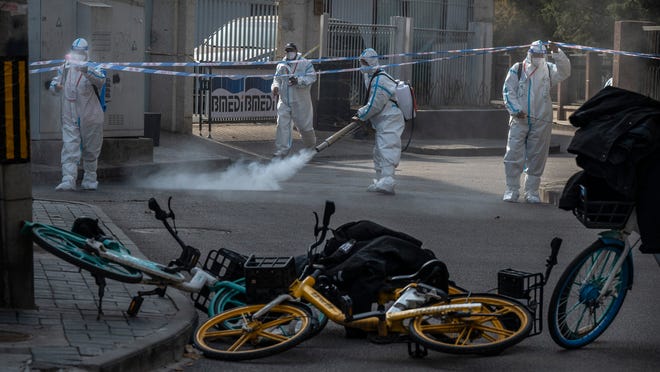In a flurry of federal action, two of the nation’s top health agencies authorized and expanded COVID-19 vaccine eligibility to allow older Americans to receive a second booster shot.
On Tuesday, the Food and Drug Administration authorized a second dose of either the Pfizer-BioNTech or Moderna shot for people 50 and older at least four months after their first.
The Centers for Disease Control and Prevention signed off on the authorization several hours later.
The agency’s director, Dr. Rochelle Walensky, said the additional booster is especially important for people 65 and older, and those 50 and older who have underlying medical conditions that increase their risk of severe disease from COVID-19.
HOW DOES COVID-19 AFFECT ME? Don’t miss an update with USA TODAY’s free Coronavirus Watch newsletter
“They are the most likely to benefit from receiving an additional booster dose at this time,” she said in a statement.
Here’s what to know about booster shots:
Who can get a second COVID booster of Pfizer or Moderna vaccines?
Anyone 50 and older who has gotten any approved or authorized primary COVID-19 vaccine series and a booster dose is eligible for a second booster of Pfizer-BioNTech or Moderna at least four months after receiving their first.
Although the CDC expanded booster eligibility, the agency says the second shot is especially important for those 65 and older and those 50 and older with underlying medical conditions.
Anyone immunocompromised and age 12 or older is eligible for another dose of the Pfizer-BioNTech vaccine, and immunocompromised adults can now also receive the Moderna vaccine.
For the immunocompromised, the initial vaccination course is three doses. They have been allowed since last fall to get a first booster, or fourth dose, and are now entitled to a fifth, CDC spokeswoman Kristen Nordlund confirmed.
What qualifies as an ‘underlying medical condition?’
Studies have shown that people who have certain medical conditions are more at risk of developing severe disease from COVID-19, according to the CDC.
These medical conditions include obesity, diabetes, chronic lung, kidney or liver disease, heart disease, smoking, pregnancy and many mental health conditions.
The CDC completed a review for each medical condition to ensure it met the criteria to be included on the list but urges people to talk with their health care provider about their risk as some medical conditions may not appear on the list.
Can people who received a Johnson & Johnson vaccine get a second booster?
People who received initial doses of the Johnson & Johnson vaccine can receive a second booster dose, Nordlund said. The J&J vaccine was initially a one-shot vaccine, though studies suggested that two doses were needed to provide the same protection as the other two authorized vaccines.
J&J recipients have been eligible since last fall to get a second shot, and the CDC recommended they receive an mRNA vaccine for their second dose. They can receive a third shot, with either Pfizer-BioNTech or Moderna, Nordlund said.
Where can you get a second COVID booster?
The nation’s top two pharmacies say they’re gearing up to administer second booster doses to eligible recipients this week.
A CVS spokesperson told USA TODAY eligible patients “will soon” be able to schedule the additional shot online or through the pharmacy app, but did not specify when people can make their appointment.
Walk-in appointments at Walgreens pharmacy are available Wednesday through Friday, “as store capacity allows,” a spokesperson said. Appointment scheduling at Walgreens will be available online or through the mobile app starting Friday.
What does the data say about a fourth dose of COVID vaccine?
There is no data suggesting that healthy people will significantly benefit from a fourth dose or how long the fourth dose would last.
But some data suggests a second booster shot would help combat fading immunity after the third shot.
The FDA cited an ongoing study among Israeli health care workers, 154 of whom received a fourth shot with the Pfizer-BioNTech vaccine and 120 who were boosted a second time with Moderna.
Two weeks later, both groups saw at least a tenfold increase in levels of antibodies capable of fighting off COVID-19, while antibody levels continued to fall among those who didn’t receive an additional booster. No new safety concerns were raised in either group.
Other studies, some not officially peer-reviewed and published, show vaccine effectiveness declines three to six months after the initial booster, and a second booster can improve protection against severe disease.
Contributing: Karen Weintraub, USA TODAY. Follow Adrianna Rodriguez on Twitter: @AdriannaUSAT.
Health and patient safety coverage at USA TODAY is made possible in part by a grant from the Masimo Foundation for Ethics, Innovation and Competition in Healthcare. The Masimo Foundation does not provide editorial input.

